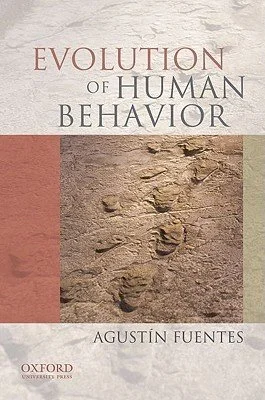Episode 173: Agustín Fuentes
Beliefs Are Real For Those Who Hold Them
“Belief” as a word can take on so many meanings. Most people only think about it in terms of religion. But our guest says belief plays a central role in many other critical distinctively human things, including economics, love and politics. He further defines belief as the “capacity humans have to commit wholly and fully to this mix of experience, imagination, ideology, thoughts, and ideas.”
Agustín Fuentes is a primatologist and biological anthropologist at Princeton University whose research focuses on the biosocial, delving into the entanglement of biological systems with the social and cultural lives of humans, our ancestors, and a few of the other animals with whom humanity shares close relations. From chasing monkeys in jungles and cities, to exploring the lives of our evolutionary ancestors, to examining human health, behavior, and diversity across the globe, Agustín is interested in both the big questions and the small details of what makes humans and our close relations tick.
His written works include “Race, Monogamy, and Other Lies They Told You: Busting Myths about Human Nature,” “Why We Believe: Evolution and the Human Way of Being,” and “The Creative Spark: How Imagination Made Humans Exceptional.”
Greg and Agustín dig into the world of believing, discussing how human niches differ from other organisms, tolerating heterogeneous cultural beliefs, and the physiology of our beliefs, and what we are getting wrong about human nature.
Episode Quotes:
The disconnection of empathy in academics
“I think one thing that we're really lacking here in the current United States in the moment is empathy, and I think academics lack a lot of empathy frequently. You can't be in someone else's mind if you don't share those beliefs, but you can empathize with them. You can listen. You can sort of get an idea, right? Remember, the philosopher Thomas Nagel says, "You can't think yourself into the mind of a bat." You can't fully think yourself into the mind of someone who believes something radically different from you, but you can listen to them. You can empathize with them. You can try to understand where they're coming from, and that gives you, I think, as close as possible, that connection.”
On human belief
“When I'm talking about human belief, what I'm talking about is this ability to take life experiences, understandings, information, imaginings, possibilities, ideologies, and to put them together in such a manner that they become wholly real, fully felt, and experienced by the individual.”
The complexity on human nature
“They say human nature, I say human natures. There are many successful ways to be human. There's these commonalities and these patterns, we better know what they are. But actually there's more variation and more interesting complexity than most people think.”
Show Links:
Recommended Resources:
Guest Profile:
Faculty Profile at Princeton University
Professional Profile at Sapiens
Agustín Fuentes at TEDxUND
His Work:












